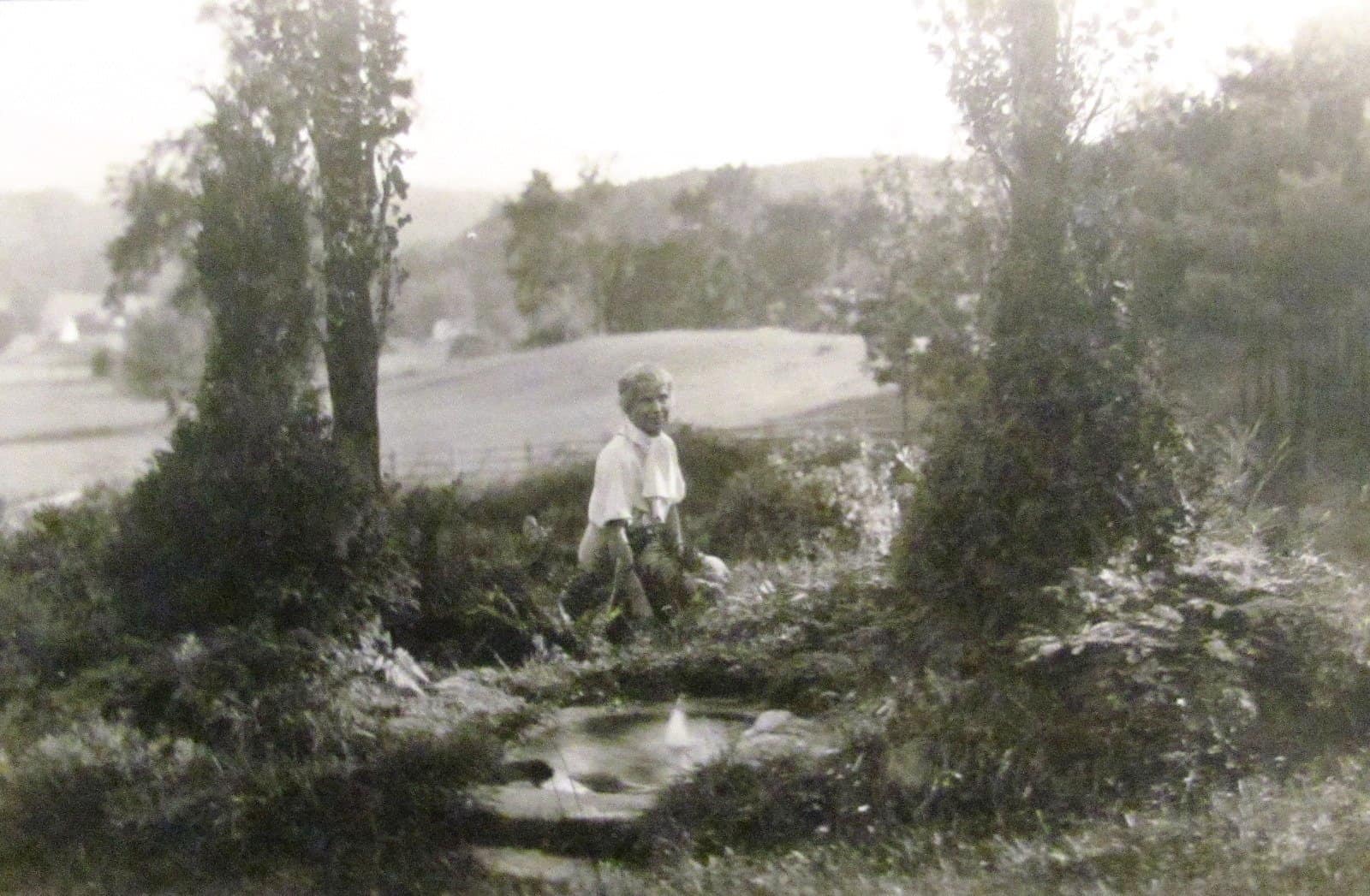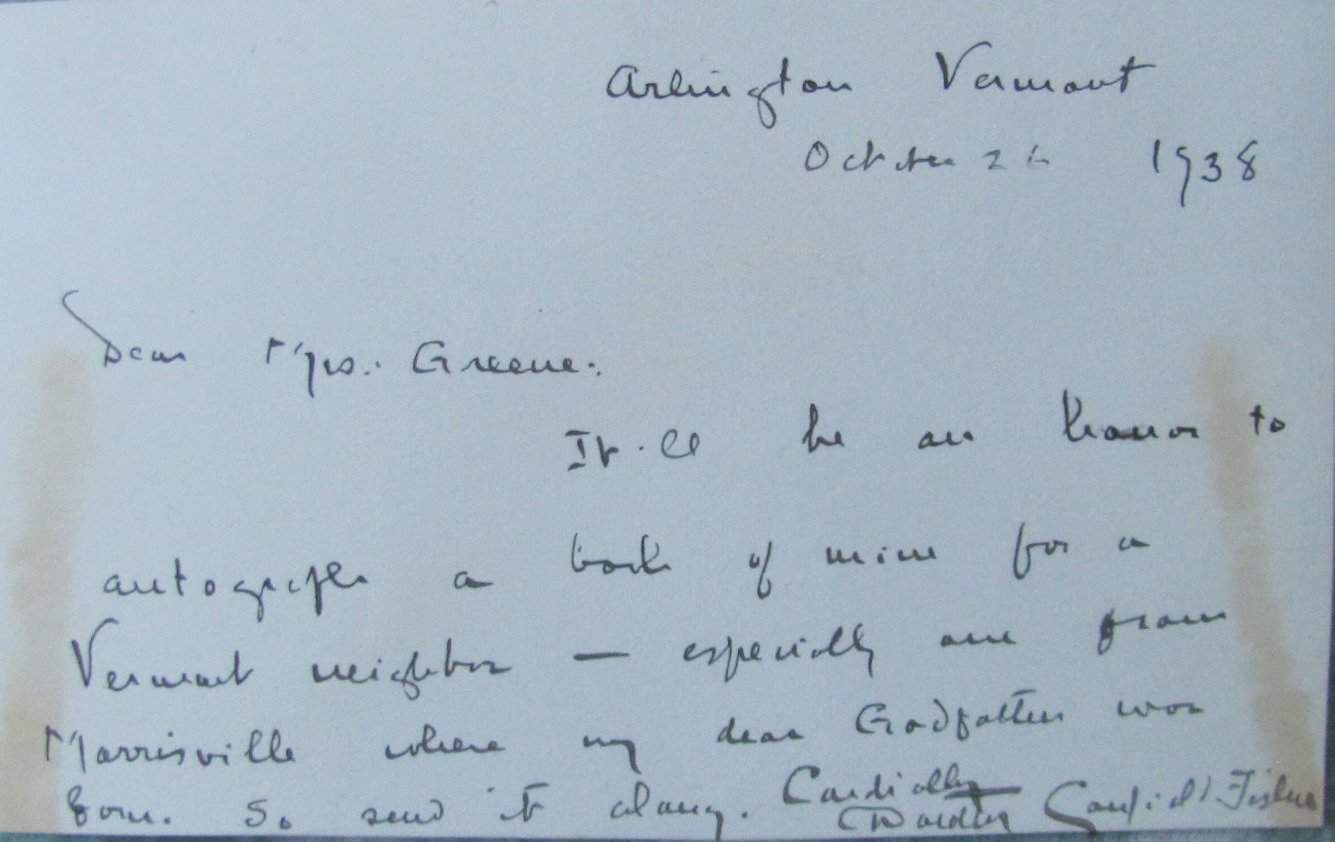
The title of my weekly column is, “Local History.” As you know, I usually write about something of local history or interest. But my interests are much broader than just local history. So this week I stray some. I hope you approve.
I love Vermont and I love history, so it only follows I love Vermont history. This week, I write about Dorothy Canfield Fisher of Arlington, Vermont. She spoke five languages fluently. The following is an excerpt from her Wikipedia page:
Dorothy Canfield Fisher, Feb. 17, 1879 – Nov. 9, 1958, was an educational reformer, social activist, and best-selling American author in the early 20th century. She strongly supported women’s rights, racial equality, and lifelong education. Eleanor Roosevelt named her one of the ten most influential women in the United States. In addition to bringing the Montessori method of child-rearing to the U.S., she presided over the country’s first adult education program and shaped literary tastes by serving as a member of the Book of the Month Club selection committee from 1925 – 1951.
The postcard
I recently purchased from a large lot of real photo postcards, an autographed postcard of Dorothy Canfield Fisher. She sits outdoors near a bubbling pool at her Arlington home.
The message on the postcard:
Arlington, Vt., Oct. 26 1938.
Dear Mrs. Greene,
It’ll be an honor to autograph a book of mine for a Vermont neighbor – especially one from Morrisville, where my dear Godfather was born. So send it along.
Cordially, Dorothy Canfield Fisher

I just started reading, “Memories of My Home Town,” written by Fisher in 1955. In literary detail I lack, Fisher explains why Vermonters treasure our history and stories. Her description of Arlington would be true of most small towns in Vermont and New Hampshire.
The introduction, in part:
In Arlington, as in most small, old, close-knit communities, everyday chat between neighbors is not limited to the present. The past is part of today. Some happenings of long ago often appear in talk about an event of today, especially if it is, as old stories often are, an explanatory footnote from 1810, 1779, or 1862 to gossip of the mid-twentieth century.
These stories are so familiar to those who cite them that often, only a single phrase need be used, as, “Who’s sick?” or, “Where’s my hat?”…
…These modern tales cannot be told twice because they have no value beyond the unexpectedness of the crack at the end. We treasure our remembered people and doings because they are comments on human life, drawn from somebody’s first-hand experience. For us they do not get threadbare, withered, or forlornly cracked and shabby with much handling, but rather, like a well-kept, much used old pine table or maple desk, come down from our community’s past, with a gleam which only age and constant, purposeful use can produce.
But we know very well that these tiny glints from the past life of our old home town belong, like the plain old table, right where they have always been. An incommunicable part of their flavor for us is that they bring to our minds something or somebody who really lived here, where we now live – perhaps in the little old house, last in the village, on the left-hand side as you drive out toward West Arlington….
…We know very well that these humble anecdotes would seem to people of the big world no more than pinches of dust – or perhaps single blades of grass from a meadow.
Why put them down on printed pages at all, even on privately printed pages? Well, one reason is that we feel we would like them to be known to all our younger generation, just growing up, and to newer people come to Arlington to join us as residents and citizens…
…Such stories would be intolerably tiresome to many sophisticated Americans, who are used to talk brisker, more strongly accented, more explicit, more brightly colored, more swiftly paced, or sharply focused on the present. If you belong to that numerically large and urban group, my advice to you is just to lay this book back on the pile in the bookstore and forget it.
As I read the introduction I recognized myself in her words. Until now, I was unaware why I tell stories of the old days. It is part of what makes a Vermonter. We cherish our ancestors and our history. I bet more than a few readers will make this same observation.
This week’s old saying: “When I’m by myself I’m in the company of a fool.”